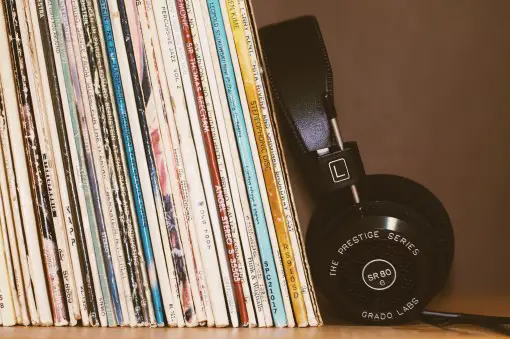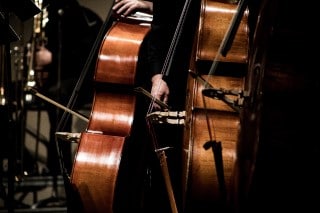
Yes, Music Really Can Help Your Insomnia
By Jason Wooden, PhD
We’ve all heard about counting sheep, drinking warm milk, listening to white noise, or taking a hot shower – popular tricks that work to varying degrees.
Out of desperation or convenience, many people resort to sleeping pills. (Past CDC estimates suggest that 4% of US adults use prescription aides each month.)
Unfortunately, these drugs have serious downsides which include drug dependence, withdrawal symptoms, and rebound insomnia. (You can read more about this here.)
One natural remedy which continues to grow in popularity is music. In fact, some people swear by it.
However, can it really help you sleep better?
In one of the most comprehensive music and sleep studies to date, researchers recently analyzed the results from 20 different clinical trials that directly tested whether music improves sleep.
Altogether, this analysis involved 1339 patients with primary insomnia. (These are patients whose sleep issues are not caused by another health condition.)
The study looked at how long it took subjects to fall asleep, how much they actually slept while in bed, and how well subjects felt they slept.
Music was shown to be clinically effective in dealing with all three issues. Subjects fell asleep faster, slept more in bed, and felt that their sleep quality was better.
So, the answer is yes – music really can help your sleep.
The connection between music, emotion, and health has been talked about since the time of Aristotle.
What exactly does it do to help you fall asleep faster and sleep better during the night?
It turns out that music can relax the body and mind which is thought to help prepare you for sleep. In fact, studies have shown that music can directly affect the stress response in the body.
Studies have also shown that listening to music can increase feel good chemicals in the brain such as dopamine. It can also mask ambient noises in the bedroom that disrupt sleep.
This has led to the emergence of music therapy, an exciting new therapeutic field. Besides insomnia, it’s currently being used to help with depression, anxiety, memory loss.
Now, before you start blasting your favorite hard rock artist at bed time, you should make sure you’re listening to the right type of music.

Loud music that gets your heart racing won’t help you fall asleep
Popular choices include classical and new age music. You may have to experiment a little to figure out what works best for you.
Sleep hygiene includes things like avoiding stimulants, keeping a bedtime routine, and improving your sleep environment. Ideally, your bedtime music should be a part of your regular routine.
Finally, listening to music may not work for everyone. However, it’s a natural and low-cost option well worth trying. And when it comes to insomnia, it doesn’t hurt to have more options.

What’s the best music for insomnia?
- Start with familiar songs
- Try lite music: classical, jazz, folk, or “new age”
- Avoid music that overly excites or is loud enough to keep you awake
- Look for music that’s slow and stable rhythm (60 beats / minutes) with low tones. You can check the BPM for your music here.
What’s the best music for insomnia?
- Start with familiar songs
- Try lite music (classical, jazz, folk, or “new age”)
- Avoid music that overly excites or is loud enough to keep you awake
- Look for music that’s slow and stable rhythm (60 beats / minutes) with low tones. You can check the BPM for your music here.
What’s the best music for insomnia?
- Start with familiar songs
- Try lite music (classical, jazz, folk, or “new age”)
- Avoid music that overly excites or is loud enough to keep you awake
- Look for music that’s slow and stable rhythm (60 beats / minutes) with low tones. You can check the BPM for your music here.
2. The Effect of Music on the Human Stress Response. PLOS ONE, 2013, volume 8, issue 8, e70156.
3. Anatomically distinct dopamine release during anticipation and experience of peak emotion to music. Nature Neuroscience, 2011, volume 14, pages 257–262.
Connect with us:
About Us
Better Sleep Simplified® was founded as a place for you to get clear and well-researched information.
Our goal is to make sure you know about your options so that you take action sooner rather than later.
Check us out on YouTube:
Watch and Learn
Helpful sleep tips, interesting sleep facts and statistics you want to know about
Affiliate Disclosure
This site is a participant in the Amazon Services LLC Associates Program and other affiliate advertising programs designed to provide a means for sites to earn advertising fees by advertising and linking to them.
Important: BetterSleepSimplified.com is for informational purposes only and is not intended or implied to be a substitute for professional medical advice, diagnosis, or treatment. Always consult a physician for sleep and health concerns. See additional information.
